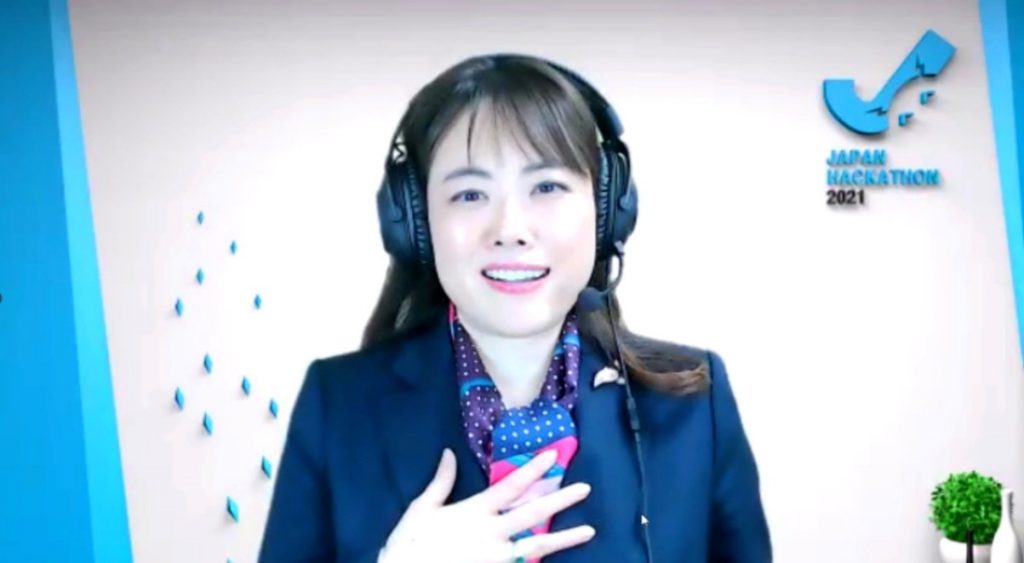
- ARAB NEWS
- 09 Jul 2025

Nader Sammouri
OSAKA: Kanako Akagi is one of the few first self-starting women in Kyoto and Japan who created a movement and a vast following for Japanese women, not only for those residing in Japan but also for those all across the world.
Kanako cofounded Japan Hackathon, a 52-hour event, that gathers talents to solve community problems, as well as Kyoto University International Entrepreneurship Club (KUIEC), which has 200 student members from 40 different countries as of today.
It is hard for women who desire to start a business in Japan to just do it, simply because there aren’t many sample models of proactive women doing the same thing, she said.
“The existence of my business is defined by me being a new sample model who encourages Japanese women in particular to follow this path and be able to express what they want to the universe and make it happen,” Kanako told Arab News Japan.
Heroine Power (メンバー専用ページ) is an exclusive group which Kanako had also grown online over the years, and gathers unique and rebellious Japanese women who thrive on change. Heroine refers to a woman with noble qualities who is well-regarded for her courage.
“I try to encourage a safe environment of honesty and sharing. When women view themselves in such a unique ocean with other rare models, they are encouraged to speak up and be themselves,” Kanako explained.
Kanako said she was curious but also slightly frustrated with the situation of women in Japan. Being unable to express themselves, Kanako initiated a safe tribe that helped ignite the fire in those women’s hearts and lit their energies.

Kanako said she was first exposed to entrepreneurship in Elementary school when she went to Guam for her first trip abroad. With almost no English skills and armed with curiosity, she tried to engage with the people she crossed her path with.
“I think I was lucky because of the education my parents have given me. Because of that, I was able to travel to many places. I started solo-travelling locally since I was six years old, in tours within Japan. I was the youngest in most of my trips,” Kanako said and added how her travel experiences slowly began to expand globally saying:
“I began travelling to Europe and had two homestays. I stayed with a family in England. One of the hosts was a guy with tattoos covering all his arms. My immediate impression was that he was a mafia guy,” she added.
Kanako began to grow out of her nurture associations. In Japanese society, tattoos are frowned upon and are associated with people who belong to the Yakuza, or the Japanese Mafia. Her experience in England exposed a different kind of ‘nurture’, which questioned the definition of ’nature’ in her mind.
“When I lived in the United States, I was shocked by the huge houses. I began to understand the meaning of prosperity, and most importantly, perspective.”
But Kanako’s experience in the US, a country which culturally opposed Japan in many ways, granted her one of the most vital turning points of her life.
“When I was studying in the US, Hiroshima’s nuclear incident was brought to the class discussion table. One of my American counterparts expressed how the US had the right to attack Hiroshima the way they did. My English was awful then, and I remember I had to use a dictionary to interpret and communicate my perspective about the incident,” Kanako said.
This culture clash was like muddy water growing a lotus flower.
“My teacher, who was strangely called Mr. Self, kept encouraging me to think critically and defend myself, which of course was a surprise for me. In Japan, it is frowned upon for women to have a strong opinion and are even punished for having one at times. Mr. Self insisted that I shouldn’t be afraid to have a different opinion. The encouragement that I got from that teacher was something that impacted me for the rest of my life until today,” she said.
That was the day when Kanako learned to say NO. That was the day when Kanako learned to ask the universe for what she wanted instead of submitting to what was happening to her.
Contrary to popular belief, Kanako advises that too much productivity isn’t necessarily a good thing, and instead believes that the non-productive way is sometimes the fastest way to reach a goal. She said she thinks that people are always busy trying to decipher their life maps. Creativity, she believes, has a way when your brain is too bored.
“You don’t necessarily need a map if you want to go somewhere. As long as you can see the mountain you are heading towards, you will eventually find a way. A map can be very confusing at times and could lead to paralysis analysis. We don’t need to know the whole route. We only need a destination compass,” Kanako explained.
Kanako felt that it was crucial for people to learn how to interpret signals. She shared a signal that she received once when a friend of hers advised her to reach the internationally acclaimed author Stephen Covey, very known for his book “The 7 Habits of Highly Effective People”, to share with him the ideas she had for her currently best-seller published book in Japan.
Kanako later wrote another book. Her approach to writing her books started with a spark of curiosity, which questioned the reason why many rich entrepreneurs are always unhappy and why they end up ruining their romantic relationships. She wanted to understand the reasoning behind that because Kanako and her husband desired to build businesses, loathing the potential idea of a future breakup.
Kanako and her husband decided to quit their jobs during their wedding ceremony. They met Bill, the CEO of Covey’s company in Japan, Franklin Covey, and discussed this topic with him. He found it very stimulating and exciting.